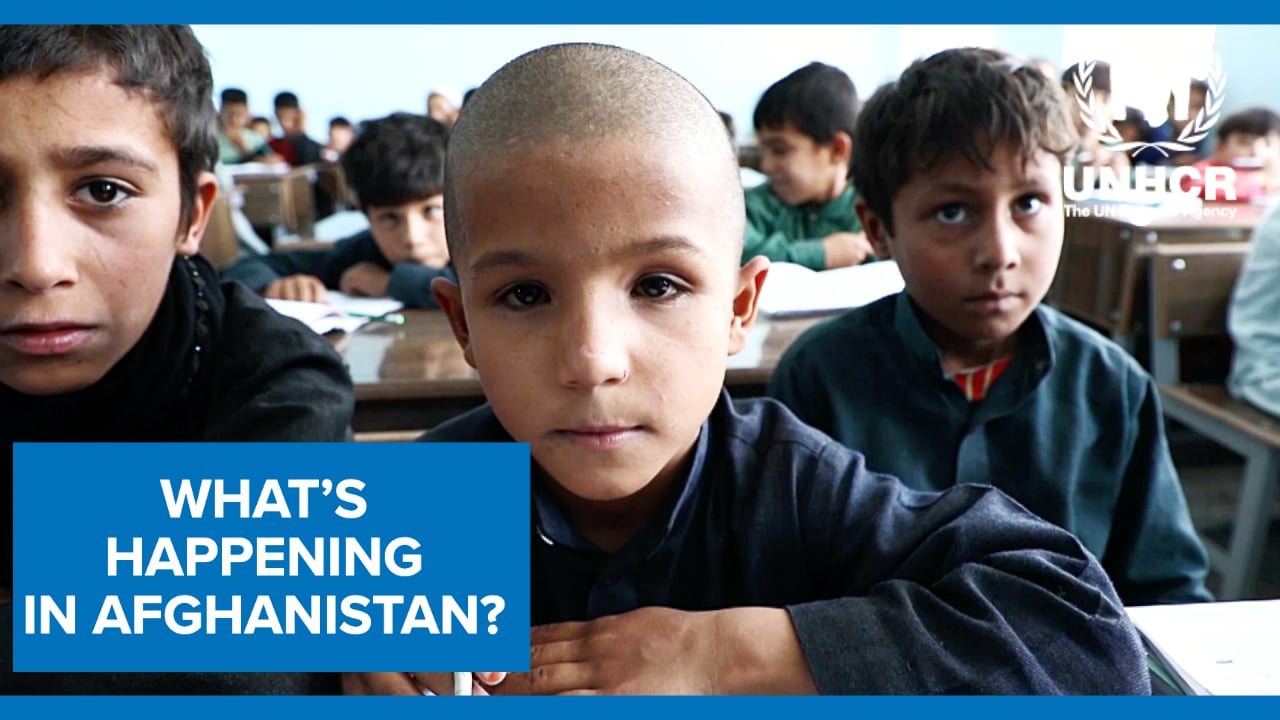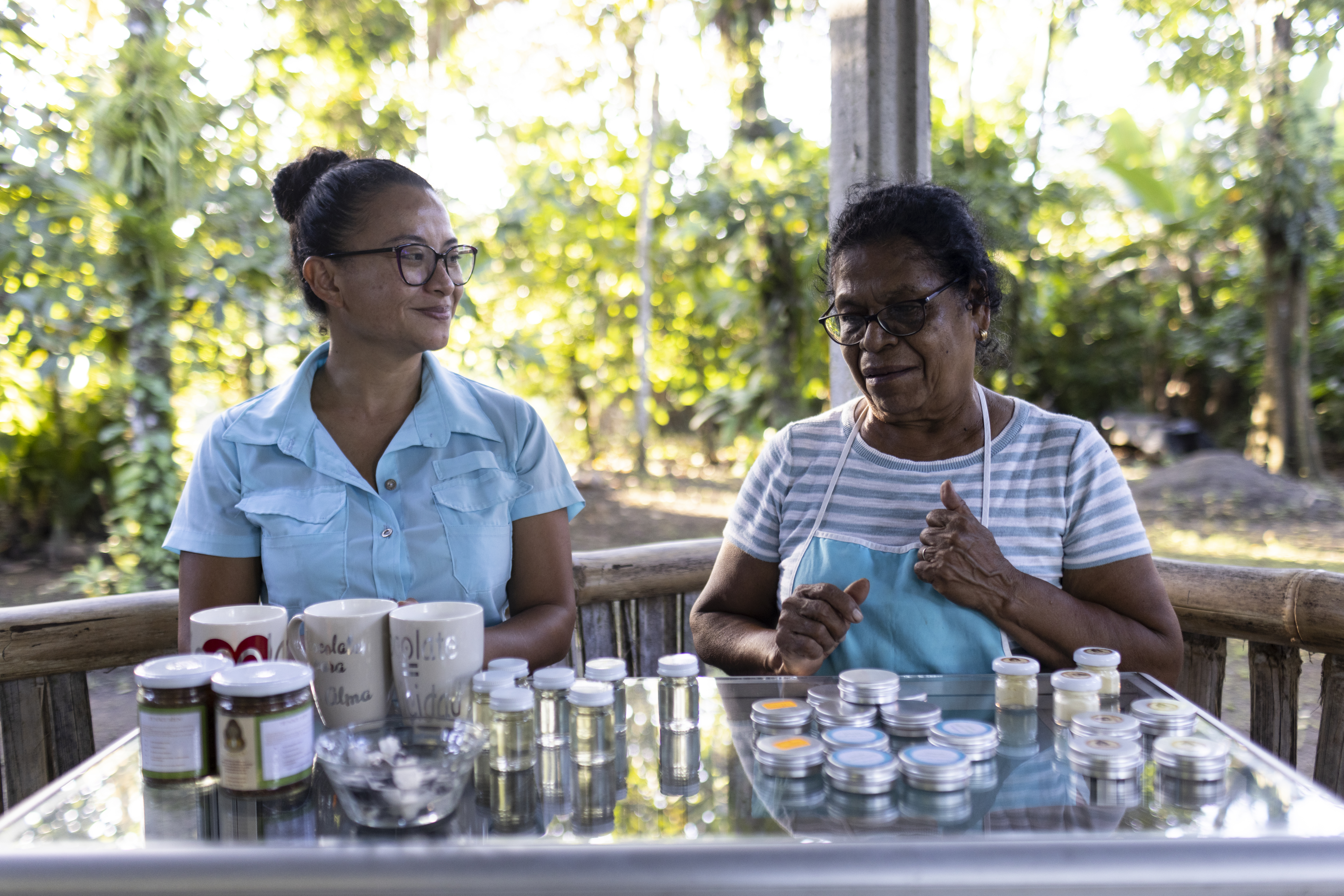Kick-off time for violence-against-women campaign in Colombia
Kick-off time for violence-against-women campaign in Colombia

BOGOTA, Colombia, November 28 (UNHCR) - The figures speak for themselves. According to a systematic survey, 41 percent of all Colombian women have suffered from violence in their own home. Among the millions of people who have been forced to flee their homes to escape another form of violence - namely Colombia's 40-year-old conflict - the numbers are even more shocking: according to the National Health and Demography survey, slightly more than half of all displaced women (52 percent) say they are the victims of domestic abuse.
Behind the figures, each individual case is a human tragedy. In Altos de Cazucá, a desolate Bogota suburb where thousands of displaced families live, a fifteen-year-old girl killed herself earlier this year. "Her mom and dad were working all day and let her run the household all on her own," a friend said. "She became the girlfriend of someone in an armed group and then she was forced to go with another man in the same group. When she came back home, she had been badly beaten. Her parents beat her too. Eventually, she killed herself."
"Displaced women are in double jeopardy," the UNHCR Deputy Representative in Colombia Agni Castro Pita said on Friday on the occasion of the International Day for the Elimination of Violence against Women in Bogota. "They have been the victims of violence at the hands of the armed groups - some have been raped, threatened, beaten; others have seen their husbands and children killed in front of their own eyes. In one way or another, they have been traumatized, yet they cannot find safety in the one place where they should be protected: within their own family. We are drawing attention to this difficult issue because then it is easier to mobilize society to address its root causes."
Castro Pita held a news conference on Friday with the mayor of Bogota, Luis Eduardo Garzón, to highlight the UN refugee agency's commitment to a nationwide campaign to combat violence against women. The campaign, which began last year, is reaching more and more cities and regions in Colombia. From video screening to symbolic dancing to visualize different forms of violence, the message is the same everywhere: "No to violence against women."
Displaced women are heavily involved in the campaign, often taking the lead in the many activities taking place all over the country. In the northern town of Barranquilla, a young displaced woman called Juana Fernandez [not her real name] is wearing a T-shirt saying "No to violence of whichever kind, from whichever guy."
In this city of 1.2 million people, the slogan appears everywhere - on stickers, buttons, posters and on every electrity bill sent out to customers. "When I put this T-shirt on," Juana says, "I feel stronger. The message is so strong that even when I walk along dangerous streets in the area where I live, I feel protected. And I think," she adds with a smile, "that the guys out there can sense that strength."
Men are the campaign's main target group and on Saturday the organizers reached out to them during the final round of the Colombian football championship. In four of the country's largest cities, large White Ribbon posters were plastered in the stadium during the eagerly awaited games, watched by millions of people across the country. The White Ribbon, which originated in Canada 14 years ago, stands for the commitment of men to non-violence against women. In Colombia it began as an initiative by UNHCR staff, soon won support throughout the United Nations offices in the country, and rapidly became a nationwide campaign.
UNHCR staffer Julio Salas volunteered to make the arrangements for the event in Barranquilla, where Atlético Junior were hosting the the league leaders Cali. The driver from the UNHCR field office in Barranquilla achieved a minute of glory when he ran around the field before kick-off on Saturday, proudly waving a "No to violence of whichever kind from whichever guy" poster. Atlético Junior, which is actively supporting the anti-violence campaign, won the match 3-2.
"Violence against women has gone on for too long," Salas explained, when asked what had motivated him. "I have witnessed women being beaten several times, and every time I had to get involved and tell the men to stop. Today, people are becoming more aware and maybe it is not so bad, but things have to change further."
By Roland Schönbauer in Bogota, Colombia









